5. Manhunter (1986)
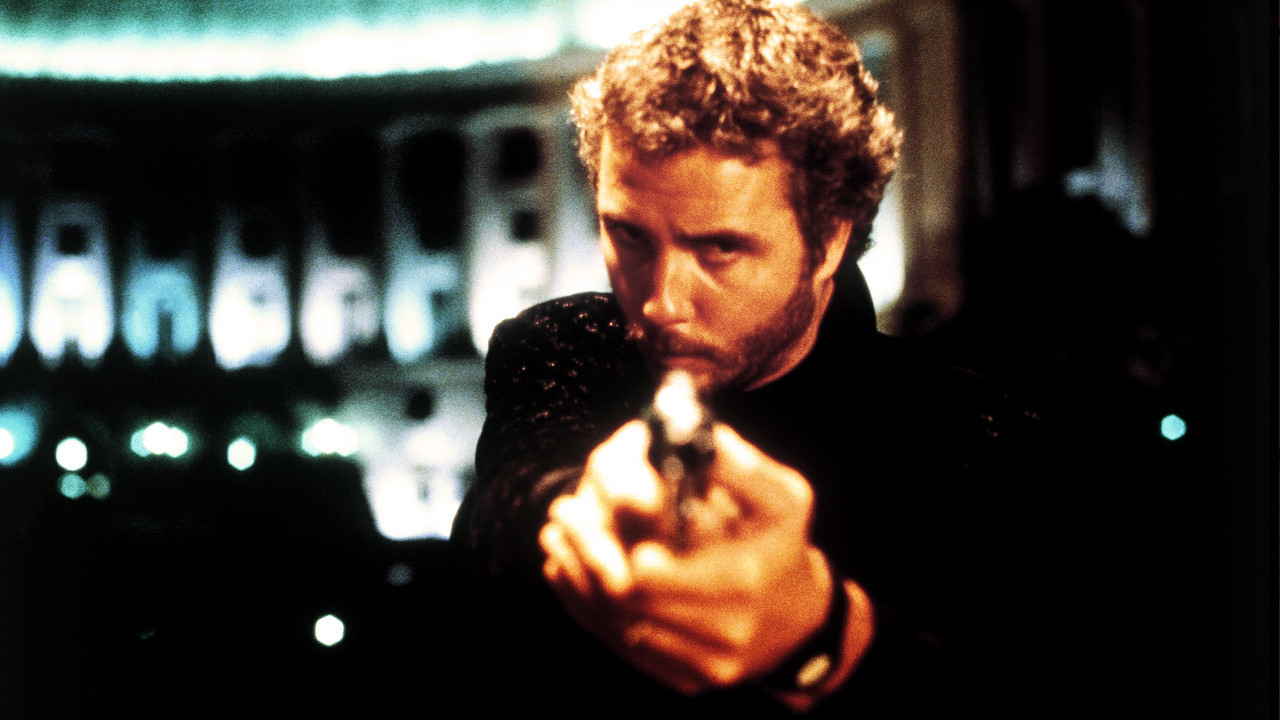
Thomas Harris’ 1981 novel was adapted twice: by Michael Mann first in “Manhunter” and then later in “Red Dragon” by Brett Ratner. The later one works, but if you have seen both films, it’s basically nothing compared to “Manhunter” where Mann delivers the chills. Its opening scene alone is one of the most disturbing ones and Mann’s camera use is incredible, so is the atmosphere he creates. This is Hannibal Lecter’s introduction to the cinema and Brian Cox is more than up to the task. It’s an understated performance; sinister but not over-the-top. The phone call scene is particularly strong. Friedkin called the film “terrifying” and it definitely is. It’s also mesmerizing for so many reasons.
Friedkin film to watch later: One of the main things that works incredibly well in “Manhunter” is the acting. Of course, Brian Cox will get more talk since he plays Lecter, but William Petersen is equally strong. One of the more mesmerizing parts of the film is just him wandering the crime scene and murmuring into his tape recorder. No wonder they cast him in “CSI” but his debut as a lead actor was in a Friedkin film called “To Live and Die in L.A.” (1985) which is some kind of masterpiece. Even though it’s mostly noted for its car chase scenes, the rest of it is incredible as well.
4. Notorious (1946)
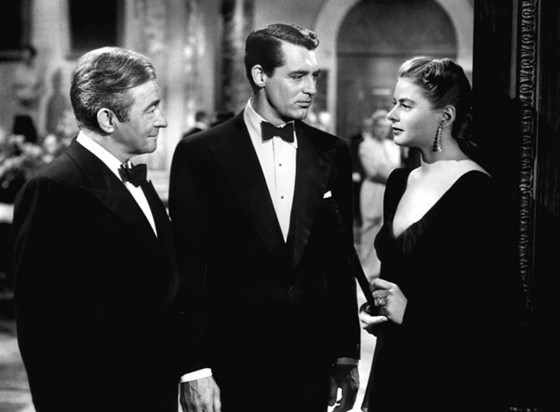
“If you want to learn how to make movies, just watch Alfred Hitchcock films,” said Friedkin on more than one occasion, and it’s hard to disagree, isn’t it? If you observe Hitchcock films, you could just learn so many things; he made so many smart decisions as a director and his range is also impressive. He’s not just the thriller master; he could handle drama, romance, and comedy equally well. Here, “Notorious” may seem like a spy thriller at first, but it’s also a romance drama and a mesmerizing, beautiful one.
The plot is about government agent T.R. Devlin (played by Cary Grant), who enlists the help of Alicia Huberman (Ingrid Bergman), the daughter of a German war criminal, to infiltrate a Nazi organization. Things, of course, get complicated when they fall in love with each other. It’s just a brilliant film all around but seriously, anything else could be here as well; “North by Northwest” and “Vertigo” are also admired by Friedkin equally, but it felt like “Notorious” deserves to be here more because sometimes it feels like it doesn’t always get named among Hitchcock’s most popular works.
Friedkin films to watch later: Alicia is a normal woman who signs up to take part in espionage, thereby surrendering her own interests and life to a cause, and probably the only film here that matches with such a theme would be “Cruising” (1980). Tonally something different than “Notorious,” obviously, as it feels more like a giallo film, where Friedkin creates an almost mythical atmosphere. But both films have one character who has to act like someone totally different and their feelings about a sense of duty. Friedkin’s love for Hitchcock might show its influences in his other thrillers like “Rampage” (1987). He’s a big lover of old classics in general and even made a terrific remake of “12 Angry Men” in 1997.
3. Caché (2005)
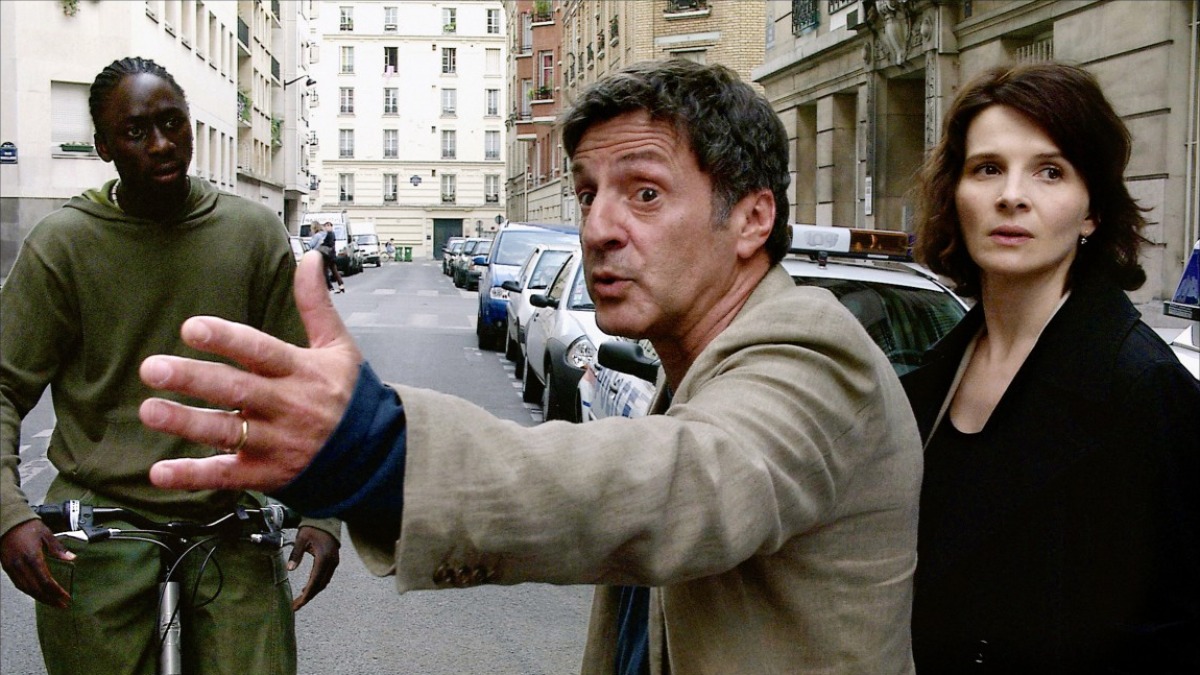
Friedkin says he’s friends with Michael Haneke, who is “a great filmmaker. The real deal. His stuff’s terrific”. He also once said, “Funny Games” (1997) might be the scariest film he had seen, and he had a lot of good words to say about another one of his great films “Caché” (2005) as well. It is set in France. There’s one happy family and they suddenly begin to receive videotapes. There’s no direct threat, but they feel disturbed by the potential stalker and through time, the tapes get more personal.
Haneke plays with the thriller expectations of the audience. It’s not about who sends the tapes, but how Daniel Auteuil and Juliette Binoche play it, how they start to stare at one another, to distrust one another. Haneke avoids music, which makes it even more of an anxious experience. Those things make the film stand out. Worth noting that the movie has also been interpreted as an allegory about collective guilt and collective memory, and as a statement on the Algerian War.
Friedkin film to watch later: Sometimes there might be a mystery in the film but it might not necessarily mean that it’s all we should care about the movie. Friedkin’s incredibly original early film “The Birthday Party” (1968) is one of those films. A certainly engrossing, unpredictable, and unusual combination of drama, thriller, horror, and comedy. It’s based on a play by Harold Pinter, which is no surprise since Friedkin is one of the best directors when it comes to adapting plays. The man has made “The Boys in the Band” (1970) overall.
2. Z (1969)
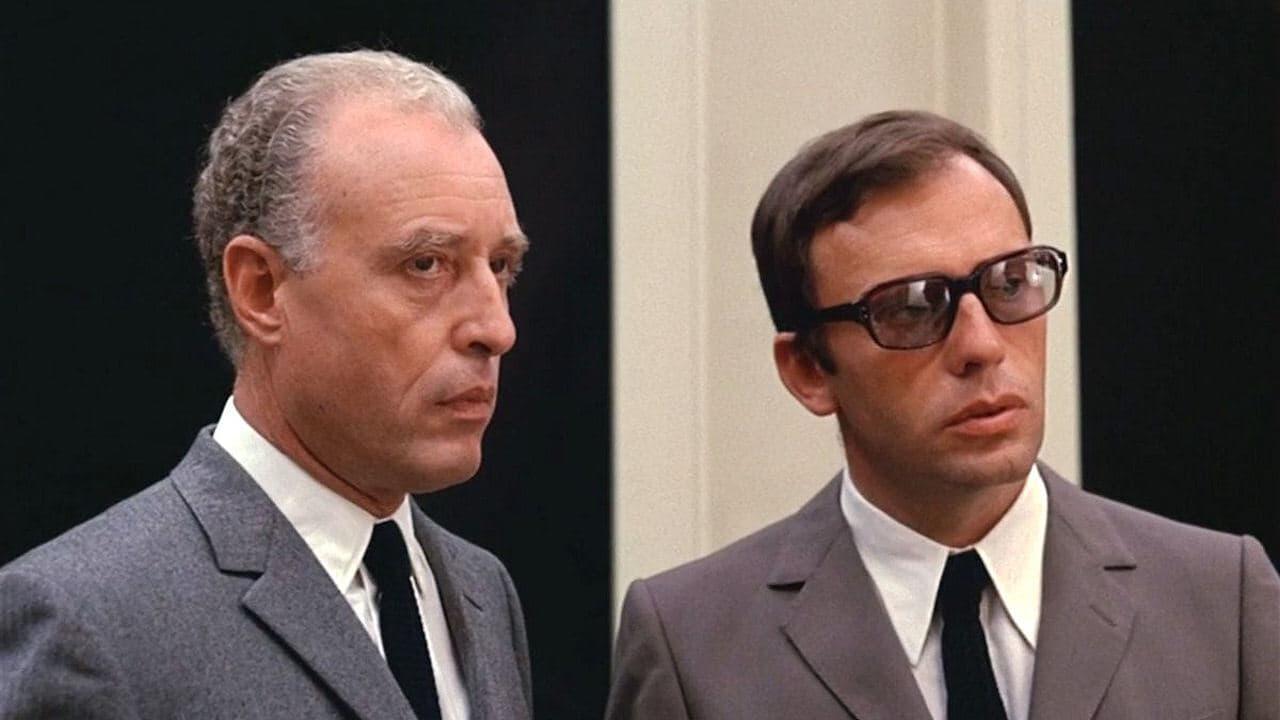
A pacifist university professor is murdered during a demonstration; the government tries to cover up the facts of the crime, but a courageous official uncovered a plot that reached the very highest circles. Without naming specific places and people, but with an unmistakable reference to events in Greece (the Lambrakis affair, 1963), Costa-Gavras has made an absolute masterpiece here. The film’s title refers to a popular Greek protest slogan meaning “he lives,” in reference to Grigoris Lambrakis, a member of the Greek resistance to Axis rule during World War II who later became a prominent anti-war activist.
“Z” is very emotional, highly moving, incredibly engrossing, and also an angry film. Brilliant editing sustains suspense for all of its runtime. The film was one of the sensational cinematic works of the 60s and highly influenced Friedkin. He says “Costa-Gavras shot “Z” like a documentary. The camera didn’t know what’s gonna happen next” and that’s what impressed him the most because he worked in the documentaries before but didn’t know you could bring the same style to a fictional film and can still make it work.
Friedkin films to watch later: The rich patina of realism in “The French Connection” (1971) has certainly inspired by “Z”. Friedkin had never shied away from being political as can be seen in the very underseen comedy “Deal of the Century” (1983) but another film he made as a political allegory is the masterpiece that is “Sorcerer” (1977). For Friedkin, the film was always about different viewpoints, different people and different cultures coming together, finding a common ground and listening to each other to find a way to survive.
1. The Night of the Hunter (1955)
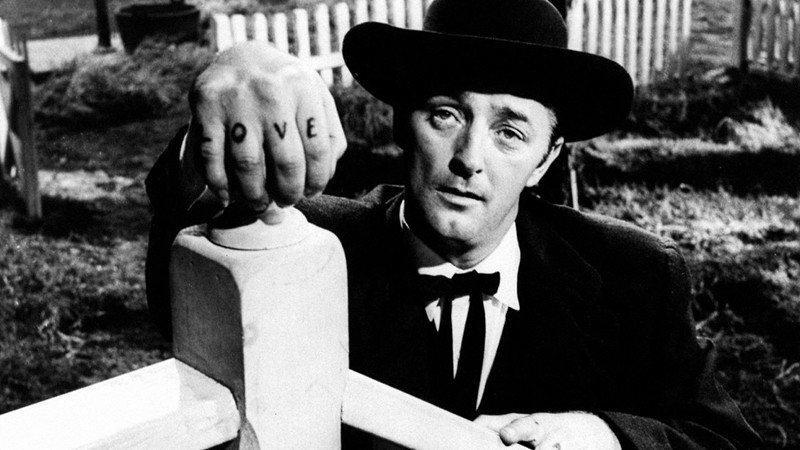
It’s hard to believe that this film was a commercial and critical failure in its initial release. Friedkin was 20 years old when he first saw it and it still terrifies him. How could it not? It’s one of the most haunting films of its time and a true Southern Gothic masterpiece.
The plot focuses on a corrupt minister-turned-serial killer – played incredibly by Robert Mitchum – who attempts to charm an unsuspecting widow and steal $10,000 hidden by her executed husband. Friedkin called the character “the most frightening psychopath I’ve ever seen depicted in the film.” The film also features great camera work thanks to cinematographer Stanley Cortez, who brings a lot of beautiful imagery. Cortez and Friedkin knew each other in life as well and he admires his work in other classics like “The Magnificent Ambersons” and “The Three Faces of Eve.” It’s also the only film directed by actor Charles Laughton, which according to Friedkin is “reminiscent of Laughton’s own character portrayals” because of its “haunting, over-the-top storytelling.” The script is also amazing and the movie has a lot of scenes that are hard to forget, particularly the river sequence. For Friedkin, the film’s story is “an American equivalent of the Brothers Grimm”.
Friedkin film to watch later: If we talk about southern gothic films, how can we ignore “Killer Joe” (2011)? It shares many of the elements from “The Night of the Hunter,” while simultaneously extending its nihilistic viewpoint of the Southern underclass and regional living. Matthew McConaughey’s character, like Mitchum, is also terrifying and charismatic at the same time. The whole cast is great (special shout-out to Gina Gershon) and it’s currently the last feature film Friedkin has directed. Will he make another non-documentary film in the future? Who knows, but if not, “Killer Joe” is an excellent way to end an incredible career. Original, unpredictable, and surprising, just like the man himself. Just like his taste in movies.